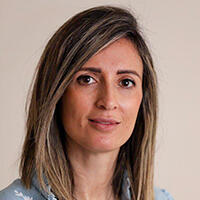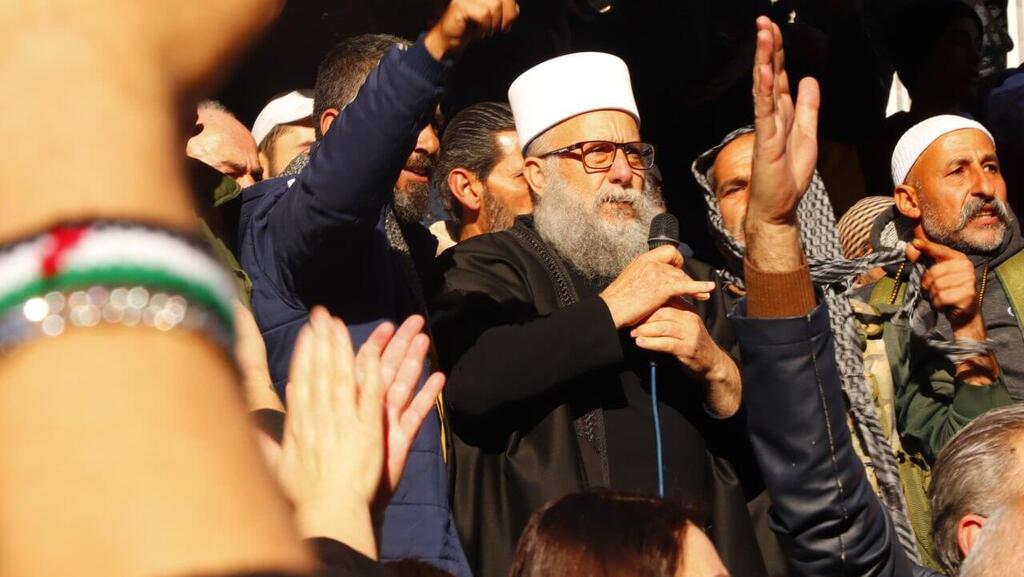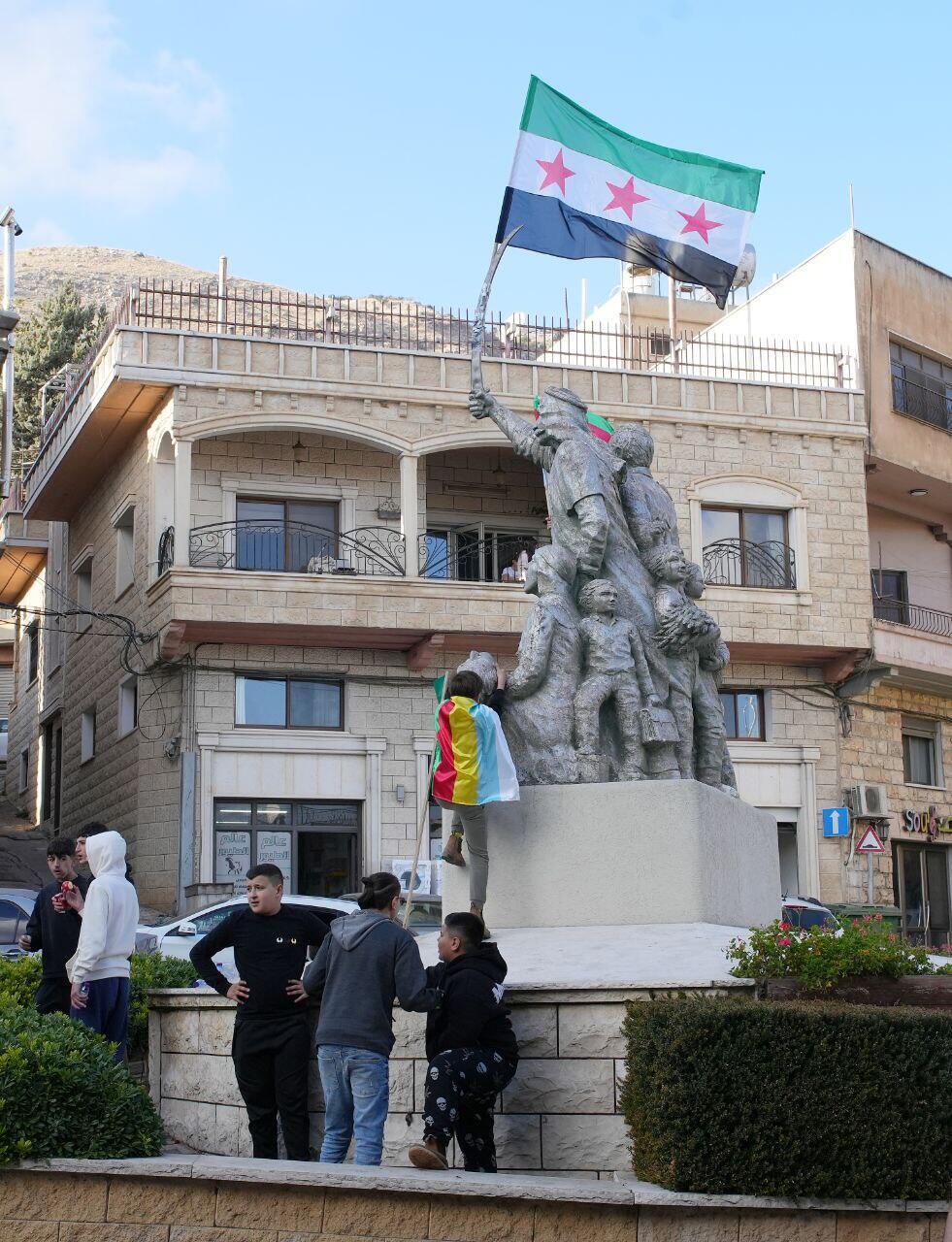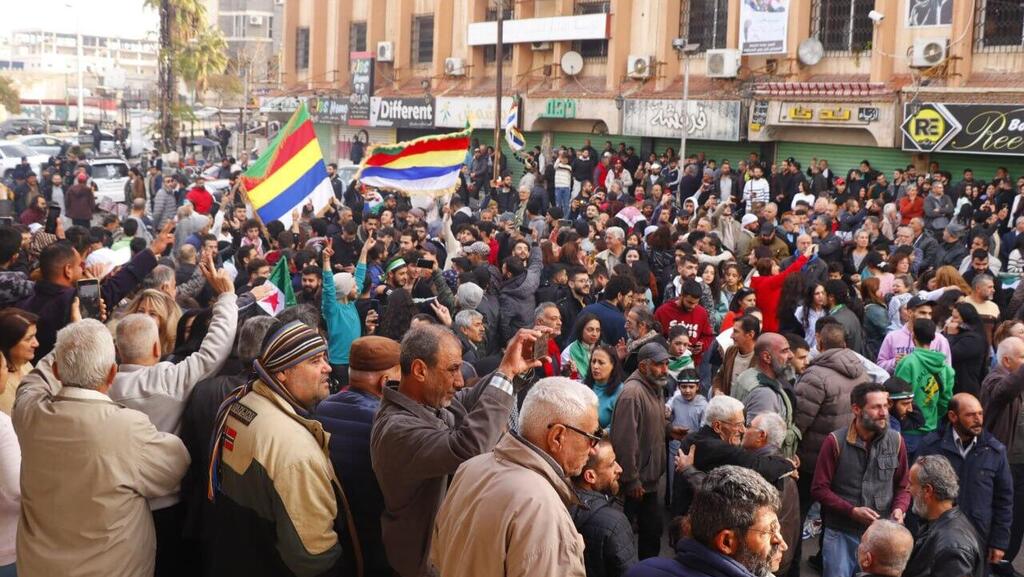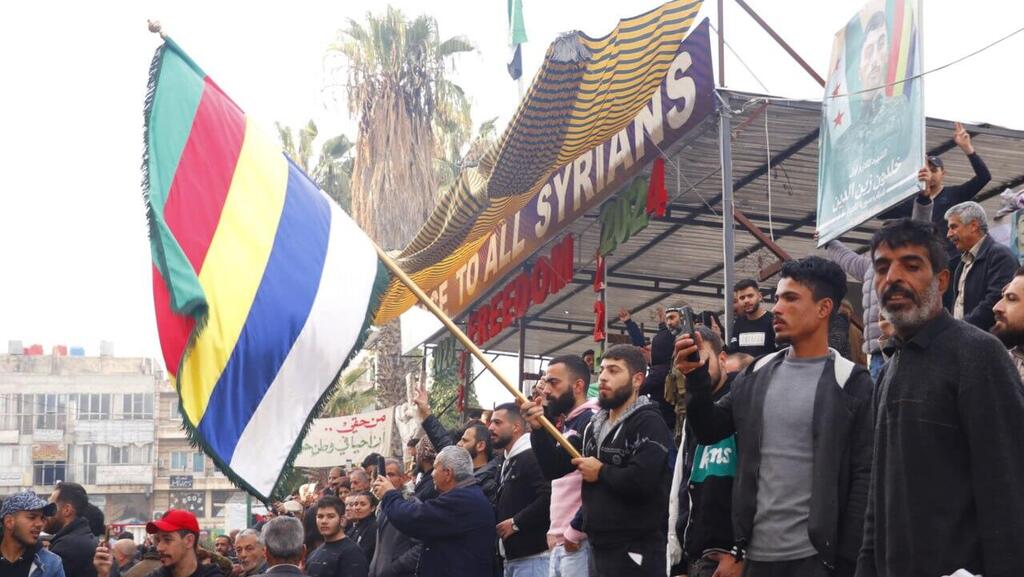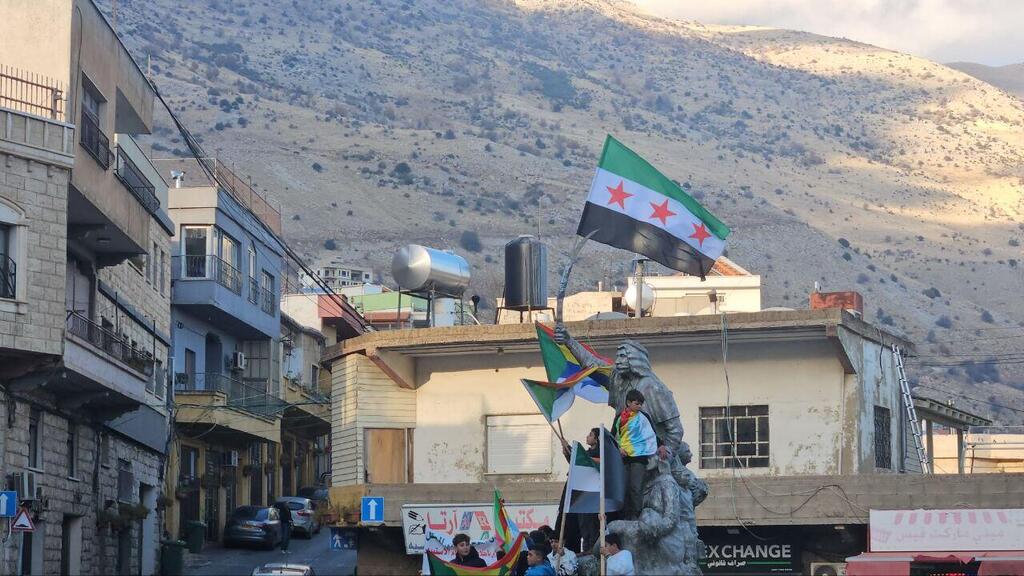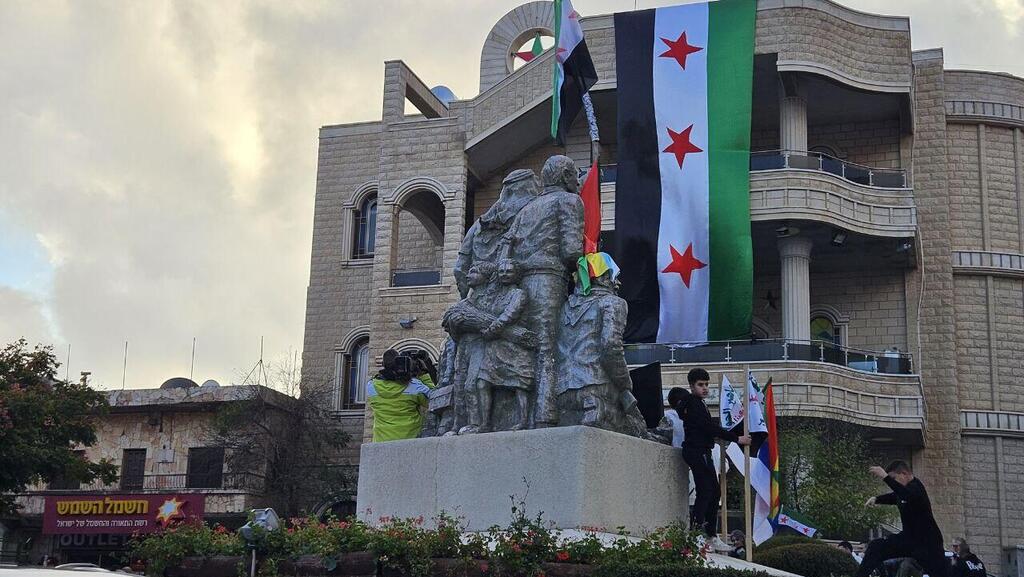Getting your Trinity Audio player ready...
Sheikh Loai, the commander of the Syrian Druze force that liberated Sweida, a province with a considerable Druze population, spoke with Ynet on Sunday amid celebrations following the fall of President Bashar Assad's regime.
"As soon as the rebels began liberating northern Syria, we realized we had to act and remove all symbols of the tyrant Assad's rule, from police stations to military bases,” He recounted.
Celebrations after Assad's fall in Majdal Shams, Israeli Golan Heights
(Video: Yoav Zitun)
Sweida, located in southern Syria, is the largest Druze stronghold in the Middle East, covering 5,550 square kilometers (2,142 square miles) and home to around 300,000 residents. Assad made significant efforts to limit the independence of the Druze community within his territory.
The community’s spiritual leader, Sheikh Hikmat al-Hajri, approved their participation in the campaign while ensuring no civilian harm.
"When we saw the time was right, we acted swiftly," Sheikh Loai said. "We organized weapons and moved through the province, asking soldiers and police officers to abandon their posts. Most complied without resistance, but those who didn’t found themselves in armed confrontations.
“Right now, we’re filled with joy. We’ve waited so long for these moments and our region is finally free of the evil that Assad brought upon us," he added, noting that the Druze's actions were coordinated with the Hayat Tahrir al-Sham rebel group, which led the rebel offensive in northern Syria.
Tarek, a Druze journalist who fled to France after being labeled a "traitor" by the regime, described the situation for the Druze in Syria from afar. "Assad's regime severely weakened the Druze. He marginalized us militarily, politically and economically.”
“Before Hafez Assad's rise to power, Druze could hold significant military roles, but under his rule, we were held off at the rank of brigadier general. Our province has been isolated and neglected," he told Ynet.
Following the Druze region’s liberation from Assad's rule, community leader al-Hajri issued a statement, saying, "At this critical moment, we stress the need for vigilance, as the journey ahead is long and the battle is not over.”
“We call on everyone to protect both public and private property as a national and moral duty, prevent acts of vandalism and block any attempt to undermine security and stability in Sweida." After this announcement, the Druze proudly raised their distinctive flag, an act previously forbidden under Assad's rule.
One of the most traumatic events in the region in recent years took place in 2018 when over 250 people were killed in a series of jihadist attacks. This tragedy planted the seeds of rebellion within the Druze community, as the regime failed to come to their aid.
Sweida’s Druze maintain strong ties with their brethren in Israel. For over 50 years, many of the thousands of Druze residents in Israel’s four villages in the northern Golan Heights — Majdal Shams, Mas’ade, Buq’ata and Ein Qiniyye — feared showing solidarity with Israel or obtaining Israeli citizenship, concerned that the Golan Heights might one day be returned to Assad’s rule.
However, attitudes shifted during the Syrian Civil War in the past decade and some young Druze in the northern Golan even secretly enlisted in the IDF.
In Majdal Shams, flags of the Syrian opposition were raised in solidarity with the fall of Assad's regime on Sunday. Salman Fakhr al-Din, a resident of the village with relatives in Syria, said, "Finally, the Syrians are rid of a tyrant who stole public funds, starved his people and treated the country as his personal property."
Fakhr al-Din described the community’s joy: "I can’t put the happiness into words. He was a ruler who destroyed everything, with no regard for humanity. People left prisons broken in body and spirit. History has never seen such a cruel leader. He not only slaughtered his own people but sidelined minorities."
Get the Ynetnews app on your smartphone: Google Play: https://bit.ly/4eJ37pE | Apple App Store: https://bit.ly/3ZL7iNv
Samih Ayoub, another Majdal Shams resident whose brother remains in Syria, joined the celebrations in the village square, where the Syrian opposition flag was draped over the statue of Sultan al-Atrash, leader of the 1925–1927 Druze revolt.
"This is Syria’s Independence Day — the people’s liberation from Assad’s brutal rule. He looted and massacred endlessly. We’re thrilled for our family there and hope they can now live better lives with dignity," he said.



